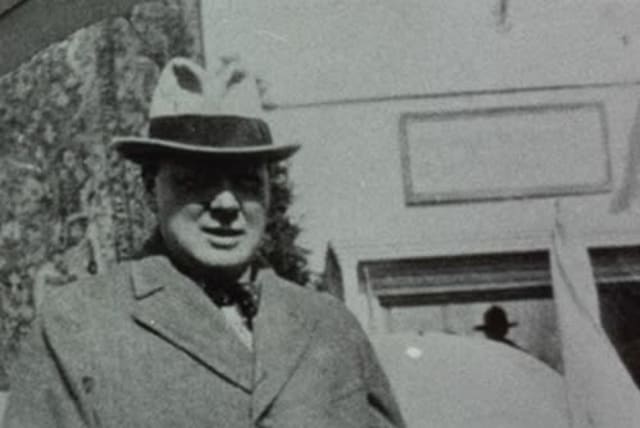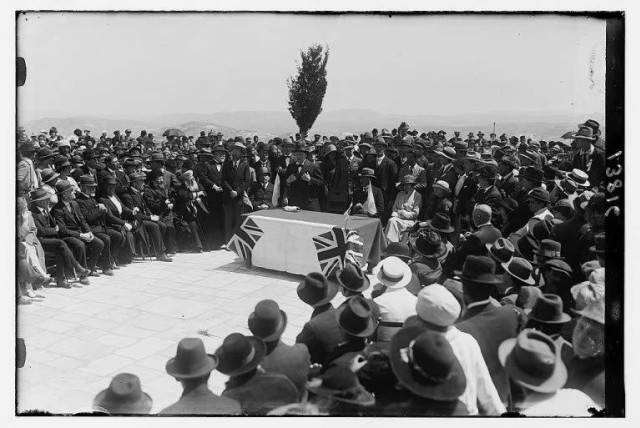Israel's leaders should learn from Churchill - opinion

It is victory, victory at all costs, victory in spite of all terror, victory, however long and hard the road may be; for without victory, there is no survival.
In 1940, in the middle of World War II, Winston Churchill was appointed British prime minister, and in his maiden speech to Parliament, he said the following: “You ask, what is our aim? I can answer in one word: It is victory, victory at all costs, victory in spite of all terror, victory, however long and hard the road may be; for without victory, there is no survival.”
Over the last few days, we have heard the word “victory” quite a lot. From Prime Minister Benjamin Netanyahu, from government ministers, opposition leaders, senior IDF figures, and other decision-makers and opinion shapers.
This is not a war of our choosing, it is one thrust on us by the unspeakable barbarity and inhuman actions of our enemies.
It has woken us up from the conception that the Palestinians are a mere distraction, but our focus must remain on the northern border and the Islamic Republic of Iran.
Violent Palestinian rejectionism is the oldest of the Jewish state’s enemies, and it is the most constant. It is the enemy that does not sleep, eat, or rest. It is the enemy that rallies global public opinion against Israel.
It is an enemy that says no to peace. No to generous offers of resolving the conflict. No to making their people’s lives easier.
It is an enemy that lulls us into thinking that if we give it money, aid, and more concessions, it will cease and desist.
We believed we could buy peace.
A victory in deeds rather than in words
All of this thinking has hopefully ended with the soul-crushing images we saw last Saturday. It needs to be replaced with a singular motivation for victory. Not a victory in words, but in deeds.
Historically, victories have ended wars, and they have always come through one event, the acknowledgment of one’s enemies that they have been defeated. They become so exhausted and browbeaten by their adversaries’ advances that they are forced to surrender.
There might be those who claim that groups like Hamas cannot be defeated, but we saw ISIS defeated. The Nazis were no less ideologically committed to their cause, but they were eventually defeated by overwhelming power and force.
Hamas, Islamic Jihad, and our other enemies can be defeated. It is achievable.
However, it depends less on them and more on us. We have to create a new conception, one where we set aside other considerations and remain steely focused on victory.
We must adopt all tactics used throughout the history of warfare, whether laying siege, disseminating propaganda, or the use of overwhelming force. We cannot be deterred from our goals.
At the moment, much of the international community is sympathetic to Israel, but that can change in the days and weeks ahead as we attack Gaza and the Palestinian death toll rises.
There will be international pressure for a ceasefire. There will be negotiations and United Nations resolutions.
These must be ignored as long as we have not achieved our goals for the war, and they should be at a minimum the following.
We need to destroy Hamas. Disarmament is not enough, because the disarmed can become armed again in the future.
As Middle East Forum President Daniel Pipes wrote recently in The Wall Street Journal: “The Hamas charter of 1988 calls for Islam to ‘obliterate’ Israel. After Saturday’s vicious assault, the time has come for Israel to obliterate Hamas.”
There is no middle ground on this.
It is certainly a difficult path and not one without more Israeli bloodshed.
For too long, we believed that no Israeli blood would need to be shed if we negotiated our way out of wars and conflicts thrust on us, but it is our that this conception has finally been put to bed.
The blood of a thousand Israelis
Hamas have given us no choice. They are no longer a dangerous irritant but a bloodthirsty enemy that will not stop until we force it to.
The blood of more than a thousand Israelis cries out for an end to Hamas and Islamic Jihad.
Our leaders must also know that the people stand behind them when making these difficult but essential decisions. The Jewish spirit, which powered us through countless terrible tragedies, that ensured our survival despite the destruction of numerous empires, is strong and behind the massive enlistment figures driving us to fight back and win.
The world is watching, but most importantly, our other enemies are focused the most. They have seen, in their own words, a weakened Israel.
They must now be reminded of the strength and power of the State of Israel and especially of its Israel Defense Forces. Hamas must be taught not to raise their heads and to lose all hope that the Jewish state will eventually be destroyed and disappear.
They need to be reminded of the spirit of 1948, 1967, and even 1973, when Israel won its wars and defeated its enemies. They must be reminded of the resoluteness of Israel’s cause and the permanence of Jewish sovereignty in its indigenous and ancestral homeland.
For this, our leaders must channel Churchill’s words and his focus. They all point to one singular word and a ceaseless paradigm.
It is victory, victory at all costs, victory in spite of all terror, victory, however long and hard the road may be; for without victory, there is no survival.
The writer is the director of the Middle East Forum, Israel office.
Jerusalem Post Store
`; document.getElementById("linkPremium").innerHTML = cont; var divWithLink = document.getElementById("premium-link"); if (divWithLink !== null && divWithLink !== 'undefined') { divWithLink.style.border = "solid 1px #cb0f3e"; divWithLink.style.textAlign = "center"; divWithLink.style.marginBottom = "15px"; divWithLink.style.marginTop = "15px"; divWithLink.style.width = "100%"; divWithLink.style.backgroundColor = "#122952"; divWithLink.style.color = "#ffffff"; divWithLink.style.lineHeight = "1.5"; } } (function (v, i) { });

